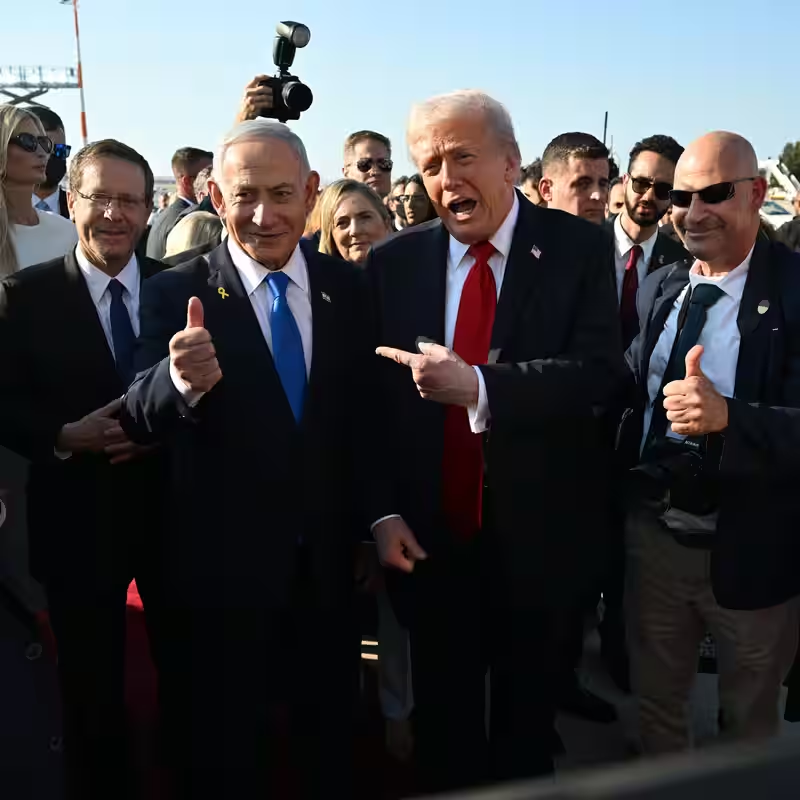In a striking intervention into Israeli domestic affairs, former U.S. President Donald Trump has publicly called on Israel’s President Isaac Herzog to pardon Prime Minister Benjamin Netanyahu, who has been embroiled in a high-profile corruption trial since 2020. The unexpected appeal has reignited debate over the limits of presidential power in Israel—and whether such a pardon could legally or politically come to pass.
What Did Trump Say?
Speaking at a campaign rally in Pennsylvania on October 12, 2025, Trump declared: “Benjamin Netanyahu is a great friend of America and a strong leader for Israel. He’s being persecuted, not prosecuted. President Herzog should step in and give him a full pardon—now.” The remarks, widely covered by international media, mark Trump’s most direct involvement in Netanyahu’s legal saga to date.
While Trump has long maintained a close alliance with Netanyahu—especially during their overlapping tenures in office—this latest comment crosses into sensitive constitutional territory in Israel, where the separation of powers is fiercely guarded.
Netanyahu’s Ongoing Corruption Trial
Since May 2020, Benjamin Netanyahu has stood trial in three separate but interconnected cases, collectively known as Cases 1000, 2000, and 4000. The charges include:
- Bribery: Allegedly accepting luxury gifts (champagne, cigars, jewelry) from billionaire benefactors in exchange for regulatory favors.
- Fraud and Breach of Trust: Negotiating favorable media coverage with a newspaper publisher in return for curbing a rival outlet.
- Abuse of Power: Using his position as communications minister to benefit a telecom giant in exchange for positive news coverage.
Netanyahu has consistently denied all charges, calling the investigation a “witch hunt” orchestrated by political opponents and a biased media.
Can Israel’s President Actually Pardon Netanyahu?
This is where things get legally complex. Under Israel’s Basic Laws, the president does hold the power to pardon offenders—but with major caveats.
According to Section 11(b) of the Basic Law: The President of the State, the president may grant pardons “after conviction”—not before. Since Netanyahu has not yet been found guilty (the trial is ongoing, with verdict expected in early 2026), a pardon at this stage would be unprecedented and likely unconstitutional.
Historical Precedent: Rare and Controversial
Presidential pardons in Israel are extremely rare. The last notable example was in 2013, when President Shimon Peres commuted the sentence of former President Moshe Katsav—after Katsav had been convicted and sentenced to seven years in prison for rape and obstruction of justice.
Legal scholars agree: a pre-conviction pardon would face immediate judicial review and almost certainly be struck down by the Supreme Court.
Political Fallout in Israel
Trump’s comments have drawn sharp reactions across the Israeli political spectrum. Opposition leaders accused Netanyahu of inviting foreign interference, while right-wing allies welcomed the U.S. support.
President Herzog’s office issued a terse statement: “The President of Israel acts in accordance with the law and legal counsel, not political pressure—domestic or foreign.”
Could a Post-Conviction Pardon Happen?
If Netanyahu is convicted in 2026, the situation changes. At that point, a pardon request could be formally submitted—though it would require consultation with the Justice Minister and likely trigger a national debate over accountability versus political legacy.
| Scenario | Legally Possible? | Political Likelihood |
|---|---|---|
| Pardon before conviction | No (violates Basic Law) | Extremely low |
| Pardon after conviction | Yes (with Justice Minister input) | Moderate—depends on public sentiment |
| Early dismissal of charges | No (only courts can dismiss) | None |
Why This Matters Beyond Israel
Trump’s intervention isn’t just about Netanyahu—it reflects a broader trend of former world leaders weighing in on foreign judicial matters, often blurring the lines between diplomacy and personal loyalty. With U.S. elections looming and Trump leading in polls, his stance may also be aimed at rallying his pro-Israel voter base.
But in Israel, the message is clear: the rule of law must prevail over political friendship—no matter how powerful the advocate.
Sources
The New York Times: Trump Calls for Israel’s President to Pardon Netanyahu




